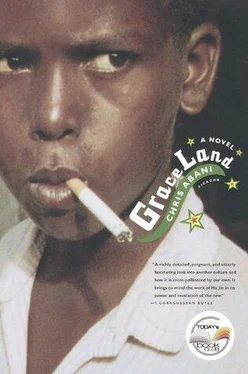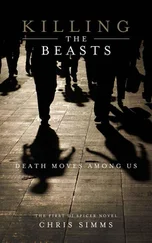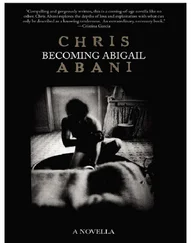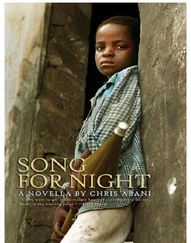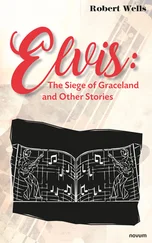ASPILIA (AFRICANA) LATIFOLIA OLIV. ET HIERN
(Igbo: Uranjila)
This is a scrambling herb covered with bristles, commonly found in old farmlands and open places in the forest Its leaves are almost triangular in shape, and have broad, saw-edged margins. It produces star-shaped yellow flowers and its fruits are seedlike, tiny and hard and have a ring of short bristles.
The leaves and flowers, when crushed, are applied to wounds to stop bleeding, healing them quicker. A little salt and lime juice added to the sap of the crushed leaves, and dropped into the eyes, remove corneal opacities and other foreign bodies, clearing up vision.
With your finger on the King’s head, trace the star. See? The lobes fall where its reach points. This is the first truth.
The King’s head is the kola nut’s apex, or head. The star is the design of lines clearly imprinted on it that determine the number of lobes the kola nut will have. This number is the key to the Igbo mathematical system. This number holds the truth of the clan.
Lagos, 1983
A pale watery sun rose over the ghetto of Maroko. The place was already abuzz with life. People hurried out to the bus stops to get to work, and the ferry dock was packed tight, yet the two ferries that spanned the lagoon between Maroko and the marina of downtown Lagos were sitting about fifty feet out in the water, with no passengers on board.
The plank walkways, which crisscrossed three-quarters of the slum, rang out like xylophones as a variety of shoes hurrying over them struck diverse notes. In the mud underneath this suspended city, dogs, pigs, goats and fowl rooted for food. Somewhere in the vicinity, the congregation of a Spiritual-Church belted out a heady, fecund music that was a rhythmic, percussive background to their religious ecstasy.
Elvis had decided to find steady work, as he couldn’t depend on his dancing to bring in a regular income. It wasn’t that he was giving up on his dream to be a dancer, he rationalized; it was more like he was deferring it for a while. Maybe with the money he earned, he could save up to go to America. That was a place where they appreciated dancers. Besides, he thought, remembering his humiliation the day before, it wasn’t as if he was enjoying it anymore. Anyway, his father was out of work and drinking again, and Comfort wasn’t too happy supporting everyone.
He walked over to Madam Caro’s Bar and Restaurant, a rather grandiloquent name for the shaky wood-and-zinc shack perched on the edge of a walkway, hanging over the swamp. Regulars often had to be fished out by the teenagers hanging around. Of course, there was an exorbitant charge, but when you were drowning it didn’t matter. It was even rumored that on slow nights, the youths pushed people in.
Madam Caro, who lived across the street from Elvis and his family, was one of those women that traditional society couldn’t peg into a role. Too big for that world, she seemed at home in the urban anonymity of Lagos. She was nearly six feet tall and had the girth of a baobab tree, or very nearly. Her skin was the black of onyx and her eyes, which missed nothing, were hard, although when she laughed they lit up.
There was a good chance that his friends would be in the bar, Elvis thought. He was eager to run into Redemption. It sometimes seemed like Redemption knew everyone, heard everything and could procure anything, for a price. Elvis hoped that Redemption would help him for free, as he was broke. Besides, they were friends.
He’d met Redemption at school when he first arrived, which in itself was a lucky break, because Redemption was hardly ever in school. He’d turned up maybe twice a month with gifts for the teachers and the headmaster, who always bumped him cheerfully to the next class. Redemption had been pulling a reluctant goat and balancing a bundle of yams precariously on his head when Elvis had torn past, nearly knocking him over, late as usual.
“Hey, stop!” Redemption shouted in a tone that froze Elvis. “What is de hurry?”
“Sorry. I’m late.”
“Well, if you help me pull dis stubborn goat to de headmaster’s office, I will make things all right for you.”
That was how their odd friendship began. Elvis adored Redemption, deferring to him as if he were the elder brother he’d never had. For Redemption this offered the possibility of something he desired most, acceptance. It was Redemption who hooked Elvis up with the spots at the beach and in Iddoh Park where he danced, and kept the hoods off him as he began what Redemption referred to as his “dancing career.” It was also Redemption who prompted Elvis to leave school and give his art his all. Elvis hung on his every word, listening as Redemption told him, at every opportunity, of his plans to leave for the United States.
“States is de place where dreams come true, not like dis Lagos dat betray your dreams,” Redemption would say. “It is full of blacks like us, you know, American Negroes wearing big Afros, walking with style, talking anyhow to de police; real gangsters,” he continued.
“Uhumm.”
“Dat’s right. Dese gangsters drive 1965 Ford Mustangs, you see. Like cowboys.”
“I thought cowboys rode horses?” Elvis would challenge, already knowing the answer.
“De horse is dere, on de hood of de Mustang. Same thing.”
As he walked in, Elvis cased the room. Even though it was early, the bar was nearly half full. Gloria Gaynor screamed “I Will Survive” from crackly loudspeakers. Elvis saw Sergeant Okoro, the policeman who lived in the same tenement as he did, talking to Madam Caro. She fished deep into her bra and took out a lot of banknotes. She peeled some off and handed them to him. He crumpled them without looking and stuffed them in his shirt pocket. Elvis thought Okoro appeared a little nervous.
Redemption was not there, Elvis noted, but his father’s friend Benji was. Benji didn’t have a job and earned a living by hooking people up with others seeking a service or a favor or a thug. His connectedness came from being a permanent fixture, and he had once bragged to Elvis: “If you wait long enough, de world comes to you.” Elvis glanced at his watch. It was eight a.m.
“Good morning, Uncle Benji,” Elvis said, sitting across from him and ordering a jug of palm wine.
“Ah, Elvis! It is good to see you. How can I help?” Benji replied, filling his glass from the fresh jug of wine.
“Uncle Benji, I need a job.”
Benji took a deep drink, emptying his glass. He refilled it before he spoke.
“I thought you are a dancer, no?”
“Yes. But there is not enough money to survive. I am barely making enough to feed myself.”
Benji drank deeply again and tried to fill his glass from the empty jug. Elvis took the hint and ordered another jug.
“Well, dis is what your father was afraid of when he did not want you to dance. Do you remember? I mean, at your age, since you are not in school, you should be helping with de house.”
“My father is an out-of-work drunk, so what does that make his advice?”
Benji bristled.
“Your father is a good man who has lost his way. Show respect, what is wrong with you?”
Elvis bowed his head apologetically. Benji sighed.
“But a son must not go hungry under a father’s roof, even if dis is Lagos. I will speak to your father,” he offered.
Elvis put his hand on Benji’s wrist, stopping him from filling his glass from the new jug.
“Don’t speak to him. I need a job.”
Benji licked his lips and looked from Elvis to the jug and back.
“All right,” he said. “Go and see Jimoh, he will give you a job.”
Читать дальше
